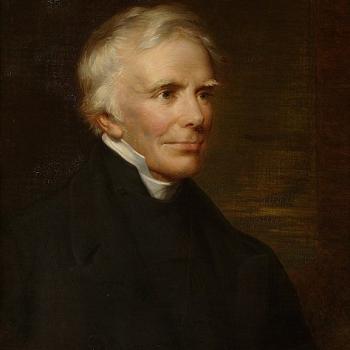
Board of Illusion, by Piotr Siedlecki [PublicDomainPictures.net]
*****
The following is my post and some of the ensuing Facebook discussion, from 1 July 2012:
A person (“Joe”) who is Catholic, but obviously laboring under some serious Protestant remnants in his thought, wrote under Fr. Dwight Longenecker’s review of my book on this topic:
“Most Protestants will come around to admit they to honor their own traditions. But what they won’t admit is that any authority is more supreme than Scripture. . . . But too many apologists spend so much time qualifying Catholic belief in the Bible, they make its inspiration seem moot. . . . I find the words of another erstwhile apologist, Greg Kreibel [it’s Krehbiel], very on target:
‘What good is an infallible Bible without an infallible Church to interpret it?’ I’ve heard that too many times to count.
“What good is an infallible Bible? That any Christian can seriously ask the question defies belief. . . . That kind of language makes Protestants roll their eyes. (‘Those Catholics really don’t get it, do they?’) . . . When a Catholic utters the phrase, “What good is an infallible Bible” he has given up any claim to credibility with that Evangelical. It would be like asking a man who was just rescued from the desert, ‘What good is water without a crystal glass to drink it in?’
“Bad habit: Trying to magnify the Church and Catholic doctrine by disparaging the Bible. Remedy: Always speak of the Bible reverently.”
The statement cited (a legitimate use of pointed rhetoric) is not untrue in and of itself. Protestants may interpret it wrongly, but that is because it is divorced from context. Protestants always tend to think Catholics are running down the Bible whenever we criticize sola Scriptura, because they are taught to think in illogical “either/or” terms, and because they equate sola Scriptura with love and reverence for the Bible (the two are not at all the same thing).
The Bible uses similar language: “What does it profit, my brethren, if a man says he has faith but has not works? Can his faith save him?” (James 2:14). The point is that faith and works inevitably must be together. By Joe’s reasoning, saying that faith is of no profit unless accompanied by works, is to run down faith. But of course, St. James is not doing that at all. He is simply saying that faith cannot be isolated.
Likewise, we Catholics say that the Bible is not isolated. To assert this is not to run it down at all (not in the slightest), anymore than faith is run down in Scripture. The fault lies in the erroneous interpretation of the language and the idea.
For the Catholic, there is no teaching “more supreme than Scripture” (Joe’s words). Catholics believe in a three-legged stool of authority: none higher than the other, but all working in tandem: Scripture-Church-Tradition.
Many a Protestant simply assumes illogically (and rather arrogantly, I might add), that to disagree with sola Scriptura (the false notion that the Bible is the only infallible source of authority) is automatically to disrespect Scripture. This is absurd. Basically, it amounts to saying, “if you don’t take my particular position on the rule of faith, you’re a bad guy. No one could possibly disagree with sola Scriptura and also reverence the Bible. They must agree with my position in order to love the Bible.”
Needless to say, this is hogwash, and doesn’t follow at all. Many Protestants are so wrapped up in sola Scriptura — like a fish in a fishbowl, that doesn’t know it’s in one, or that there is a world outside of the bowl — that they can’t even comprehend or imagine any other position on the relationship of Bible, Church, and tradition, and so must run down any other view as somehow unsavory and irreverent.
Greta Villani (Catholic) wrote: “All I know is that every time I talk with Protestants and I ask ‘show me from Scripture why you believe all doctrines must be in the Bible’…they change the subject.”
Of course they do, and that is very telling, isn’t it? Even they know instinctively that they can’t do it. If they could do it, they certainly would, and should be able to do so since they have made this their flimsy, crumbling foundation.
Richard Grebenc (Catholic) asked: “Any number of arguments against sola Scriptura seem to me to be a slam dunk. But who argues sola Scriptura best? That is, who takes on the various Catholic arguments against it systematically and does the best job in attempting to refute them?”
You can’t make a silk purse out of a sow’s ear, so no one can do a really good job. Most Protestant apologists don’t even deal with Catholic arguments, so that is not much of a factor. But the best I have seen so far is William Goode, whose arguments I am answering presently.
“And what do you see as the fatal flaw running through even the most cogent and reasoned responses?”
That they are always and inevitably self-defeating, if analyzed far enough. I show that again and again in my critiques.
Robert Weeks (Protestant) asked: “Why would one need a statement from the Bible that the Bible is the only infallible rule of faith?”
1. because it is altogether to be expected that a source that is claimed as the only infallible one, would make the claim in the first place, and not simply assume its own status as self-evident.
2. because it is the only way that the claim can escape vicious self-contradiction:
A) there is one infallible source.
B) the claim of A is either infallible or fallible.
C) in order to be infallible, by the system’s own criteria, it must be in the Bible itself.
D) But it is not. Therefore, Protestants are relying on a fallible assertion of men (no different than any other tradition) in order to establish that a document is infallible. This makes no sense. It’s thoroughly incoherent and inconsistent. Protestants rail against tradition and then turn around and are forced to use one in order to supposedly overthrow all tradition as authoritative. It’s ludicrous.
*****
Meta Description: Brief treatment of the incoherence of sola Scriptura, or Scripture Alone as the only infallible rule of faith.
Meta Keywords: Bible Only, biblical prooftexts, biblical theology, Christian Authority, exegesis, hermeneutics, Holy Bible, infallible authority, Rule of Faith, Sacred Scripture, Scripture Alone, Sola Scriptura













